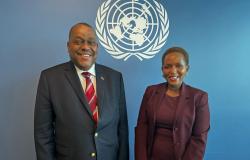After negotiations led by an international NGO, a Moroccan kidnapped by armed elements in the border area between Myanmar and Thailand was released. This after his family paid an $8,000 ransom paid in cryptocurrency. It was handed over by armed militias to the international organization “Global Advance Projects” which is active in the fight against human trafficking.
The NGO is waiting to coordinate its repatriation to Morocco with the Moroccan authorities. According to the daily, his family was able to send the ransom amount in a complex manner. The money was first paid into the account of his brother who is a banker. Then the latter transferred it to a friend who resides in Europe to convert it into electronic money, then send it to the kidnappers.
According to the daily Assabah, which returns to this affair in its weekend issue of June 1 and 2, five other Moroccans could be released soon, against payment of a ransom amounting to 8,000 dollars each. The ransom was actually paid, but the members of the network have still not kept their word, the daily underlines.
However, they had committed to releasing them once the money had been collected and to handing them over to the NGO, continues the daily, but they withdrew at the last minute, probably for fear of being arrested by the security services. Thai security.
The members of the network are, in fact, wanted by the authorities of this country for fraud, scam, kidnapping and torture. Several of their victims filed complaints, describing the atrocious conditions in which they were held captive. Some victims suffered fractures and were even admitted to health centers that are under the control of these networks.
According to the daily, dozens of Moroccans are still detained by criminal human trafficking organizations in Burma, in the Tai Shang camp in Karen State, also called the Valley of Hell, and forced to work forced as part of an electronic fraud and cybercrime network.
Furthermore, investigations carried out by the Moroccan security services are still underway to unmask the intermediaries who participated in the recruitment of these Moroccans. Because, according to sources quoted by the daily, according to reliable information, the recruitment operation began in Morocco. The objective is to recruit as many victims as possible to work in a cybercrime network.
The daily estimates the number of Moroccans still sequestered in the Valley of Hell at 158 people. Some of them refuse to return to Morocco because they are being pursued by the courts or simply because they benefit greatly from their criminal activity.
By Amyne Asmlal
05/31/2024 at 10:35 p.m.






